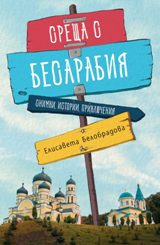Bessarabia, a region named after the Wallachian voevod dynasty Basarab, was part of the Bulgarian state up until the end of the 10th century. After that the territory was conquered by Kipchaks, Pechenegs and Mongols, as well as by Basarabs in the 14th century. These lands remained part of the Ottoman Empire until 1812, when, after one of the Russo-Turkish Wars, the region was conquered by Russia.
Data that Bulgarians from Yambol, Sliven, Karnobat and the surrounding area have been settling in these faraway lands date back to the mid-18th century. After 1774 the exodus acquired mammoth proportions due to the repressions they were subjected to by the Ottoman Empire, and also because of the enticing Russian offer for every family to be given large plots of land in perpetuity. In the rural areas they were exempt from taxes for 30 years, and in the towns – for up to 5. Bulgarians were also given assurances that they would receive financial support to build new homes. But when they arrived they found a never-ending wilderness overgrown with thorns and weeds, land that had never been tilled.
Investing a great deal of work and effort, Bulgarians transformed the region, turning the wilderness into a “breadbasket”, and their own gardens into a place resplendent with fruit and vegetables. Their entrepreneurial spirit is not hard to explain – they believed that their Bulgarian origin was their most valuable possession. They thought that if they were to preserve it no power or problem could ever break them. That is the root of the great love of Bulgaria Bessarabian Bulgarians of today still cherish, even though many of them have never been to the country.
 The history of the formation of the community of Bessarabian Bulgarians living on the territory of what are today two countries – Moldova and Ukraine – is described in a new book. In “Meeting Bessarabia” Elisaveta Belobradova describes her emotions during her 9-day journey in the region.
The history of the formation of the community of Bessarabian Bulgarians living on the territory of what are today two countries – Moldova and Ukraine – is described in a new book. In “Meeting Bessarabia” Elisaveta Belobradova describes her emotions during her 9-day journey in the region.
“The journey included stopovers in Romania, in towns connected with Bulgarian history. In Bessarabia we had a great many interesting encounters. I have an interview with a 94-year old Bulgarian woman who experienced the year of famine in Ukraine. 10 years later the so-called Holodomor came to Bessarabia. Bulgarians had their private property taken away from them, it was nationalized, the men were sent to Siberia and over one year the population started dying of hunger.”
Elisaveta’s reasons to go to these lands are connected most of all with the many legends told in this country about Bessarabian Bulgarians. She says that “live encounters are so very different from what one can see or hear in the media.”
Elisaveta found out, firsthand, and described what life is like for Bulgarians in Bessarabia, what their problems are. One of these problems connected with the study of the Bulgarian language by their children has been solved, though in different ways in Moldova and in Ukraine.
“In Moldova there is no problem at all, Bulgarian is taught everywhere though all schools are Moldovan,” she says. “Bulgarian is taught as a second language, Russian is the official language and all subjects are taught in Russian. In Ukraine it is different. There, the Bulgarian secondary school has autonomy. In Ukraine there are strict laws by force of which the Russian language is to be dropped from the educational programme. This is part of Ukraine’s policy aimed at restricting Russia’s influence in the country’s domestic affairs. They have no objections to minorities studying their native languages, but Ukrainian is to replace Russian at school. When they select a second language, Bulgarian children who choose Bulgarian will no longer study Russian, they will study Ukrainian and Bulgarian, as well as a western language.”
Bessarabian Bulgarians face other difficulties and problems as well, connected with the fact there is no stable infrastructure or motorways, which are particularly important to them so they can transport their goods and conduct their trade. The solution to this problem, however, is in the hands of the Ukrainian government which, they say, has been neglecting the region.
On the occasion of the upcoming National Holiday - March 3 and 147 years since the Liberation of Bulgaria from Ottoman rule, the Regional Library in the city of Yambol is conducting the campaign "Let's Read for Bulgaria". The goal is..
The Aviation Training Center at Sofia Airport has received accreditation from the Airports Council International (ACI) and joins the elite group of 21 training hubs, including those at leading European airports such as Munich,..
The Museum of the Bulgarian National Revival in Varna presents a collection of 15 authentic folk costumes from the collection of the Historical Museum in the town of Popovo. The valuable costumes are from the regions of Elhovo,..
The first Dalmatian Pelican of this season hatched a few days ago in the protected area Kalimok - Brushlen near the Danube town of Tutrakan, reports the..
On February 16, Radio Bulgaria celebrates its 89th anniversary . Throughout these years, our multilingual media has been not only a channel of information,..
More than 4,000 participants from 52 masquerade groups from all over the country will take part in the Jamala National Masquerade Festival in Kyustendil on..

+359 2 9336 661
